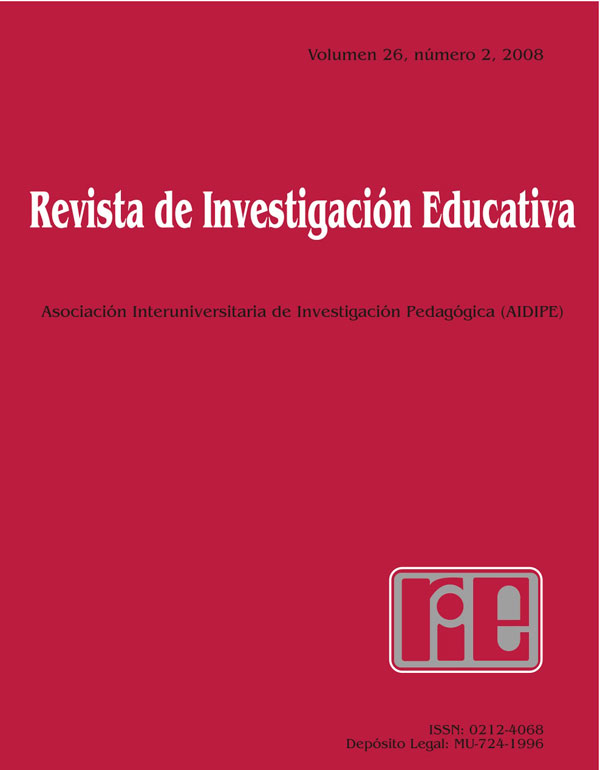Un modelo para estimar las acciones a aplicar a los alumnos de E.S.O.
Abstract
We propose a complement to the information provided by the first grades the pupils obtain in Spanish and Mathematics (logical-mathematical and linguistics intelligences). It can be seen that certain parameters related to these abilities have a big impact when determining the decisions that the Guidance, Spanish and Mathematics Departments should take as regards the pupils who have just arrived to school. These decisions can be classified as follows: — to give Spanish and Mathematics support lessons, — to give Spanish and Mathematics reinforcement lessons, — absence of decision, — to question performance according to pupils ability. Using Knowledge Discovery Techniques in Data Bases, it has been proved and confirmed that those parameters are good predictors of the actions to be taken with each as they give results of over 80% of conformity. Thus, we endeavoured, through the values obtained in these parameters, to predict which actions should be adopted in order to improve from the beginning performance in Spanish and Mathematics.Downloads
-
Abstract221
-
PDF (Español (España))176
The articles and scientific documents published in RIE abide the following conditions:
1. The Servicio de Publicaciones de la Universidad de Murcia (the publisher) has the property rights (copyright) of all the documents published and allows the reuse under the user’s license indicated in point 2.
2. All documents are published in the digital edition of RIE under a Creative Commons Reconocimiento-NoComercial-SinObraDerivada 4.0 Internacional. (legal document) license. These documents can be copied, used, distributed, communicated and explained publicly if: i) the author(s) and its original source of publishing (magazine, publisher and URL of the document) are cited; ii) it is not used for commercial purpose; iii) the existence and the specifications about this license are mentioned.
3. Auto-archive’s conditions. The authors are allowed and encouraged to digitally distribute the pre-print versions (a version before evaluation) and/or post-print (a version that it is already evaluated and accepted to its publication). This promotes circulation and distribution earlier and can increase the citations and significance within the academic community.










